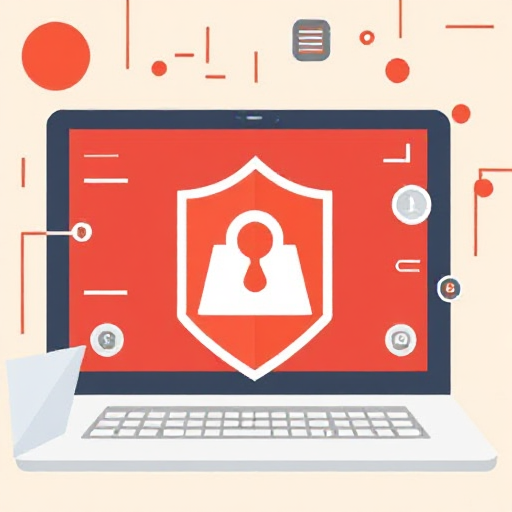
In today’s rapidly advancing world, technology plays a central role in almost every industry. Whether you’re looking to change careers, boost your employability, or simply explore a new interest, acquiring tech skills is a valuable pursuit. But what if you have no prior background in tech? Don’t worry—with the right mindset, resources, and strategy, anyone can learn tech skills from scratch. Here’s a comprehensive guide to help you embark on your journey.
1. Identify Your Goals
Start by understanding what you want to achieve with your tech skills. Are you interested in:
- Web Development: Building websites and web applications.
- Data Analysis: Analyzing and interpreting complex datasets.
- Cybersecurity: Protecting systems and networks from digital threats.
- Software Development: Creating programs and applications.
- Artificial Intelligence and Machine Learning: Teaching machines to learn and make decisions.
- IT Support: Helping organizations manage and troubleshoot technology systems.
Clarifying your goals will help you focus on the most relevant skills and resources.
2. Adopt the Right Mindset
Learning tech skills may seem intimidating, but with the right mindset, it’s entirely achievable. Here are some tips:
- Embrace a Growth Mindset: Believe that your abilities can improve with effort and practice.
- Be Patient: Progress may be slow initially, but consistency is key.
- Stay Curious: Cultivate a genuine interest in how technology works.
- Accept Mistakes: Treat errors as valuable learning opportunities.
3. Choose Beginner-Friendly Learning Resources
Many online platforms offer accessible and affordable ways to learn tech skills. Here are some popular ones:
- Free Resources:
- freeCodeCamp: Covers web development, data science, and more.
- Khan Academy: Offers courses on computer programming and computer science basics.
- CS50 by Harvard: A beginner-friendly introduction to computer science.
- Paid Platforms:
- Coursera: University-level courses on various tech topics.
- Udemy: Affordable, beginner-friendly courses with frequent discounts.
- Pluralsight: High-quality courses for a variety of tech roles.
- Interactive Platforms:
- Codecademy: Learn coding interactively.
- LeetCode: Practice coding problems to build algorithmic thinking.
- DataCamp: Focused on data science and analytics skills.
4. Master the Basics
Every tech field has foundational concepts that you’ll need to grasp. Here are some examples:
- Programming: Learn the basics of coding through languages like Python or JavaScript.
- Version Control: Use Git and GitHub to manage and share your code.
- Problem-Solving: Develop logical and analytical thinking by practicing algorithm-based challenges.
- Computer Literacy: Understand how operating systems, networks, and hardware work.
5. Start with Projects
Hands-on experience is crucial when learning tech skills. Start small by building:
- A personal portfolio website.
- Simple applications, like a to-do list or calculator.
- Data visualizations using tools like Excel, Tableau, or Python.
Projects not only reinforce your learning but also create tangible results to showcase your skills to potential employers.
6. Join Communities
Connecting with others who share your interest in tech can provide motivation and support. Consider:
- Joining forums like Stack Overflow or Reddit communities (e.g., r/learnprogramming).
- Participating in local tech meetups or online webinars.
- Joining Discord or Slack groups dedicated to tech learners.
7. Practice Regularly
Consistency is key to mastering any skill. Dedicate time each day or week to practicing, even if it’s just 30 minutes. Use tools like Pomodoro timers to maintain focus during study sessions.
8. Learn How to Learn
Tech is a rapidly changing field, so it’s essential to become a lifelong learner. Develop strategies such as:
- Note-Taking: Write summaries of what you learn to reinforce understanding.
- Active Recall: Test yourself regularly on key concepts.
- Spaced Repetition: Review material at intervals to retain information longer.
9. Seek Feedback
Sharing your projects and seeking constructive criticism can help you identify areas for improvement. Post your code or designs on platforms like GitHub or Behance and invite feedback from others.
10. Consider Certifications
Once you have a basic understanding, consider earning certifications to validate your skills. Popular certifications include:
- CompTIA IT Fundamentals (ITF+): A good starting point for IT basics.
- Google IT Support Professional Certificate: For entry-level IT support roles.
- AWS Certified Cloud Practitioner: Introduction to cloud computing.
- Microsoft Excel Certification: For mastering spreadsheet skills.
11. Stay Updated
Technology evolves rapidly. Follow industry blogs, YouTube channels, podcasts, and social media accounts to stay informed about new trends and tools.
Learning tech skills with no background is challenging but far from impossible. By setting clear goals, leveraging accessible resources, and maintaining a growth mindset, you can build a strong foundation in tech. Remember, the key is to start small, stay consistent, and enjoy the journey. With persistence and dedication, you’ll be amazed at what you can achieve.






